Within the next 10 days Ireland may have a new government in place almost five months following a general election in February 2020, based on a negotiation between two parties with bitter rivalries dating back to the Irish Civil War, and a smaller outsider.
A unprecedented coalition between Fianna, Fine Gael, and the Green Party would see the country’s two major parties join forces in government and, in another historic move, their party leaders rotate and share the role of Taoiseach (prime minister).
Leo Varadkar of Fine Gael, Micheál Martin of Fianna Fáil and Eamon Ryan of the Green Party, finalized the deal to form a coalition government on June 15, and are now looking to their respective memberships for approval by the end of the month.
Even before the dust had settled the American Chamber of Commerce in Ireland, known as AmCham, put forward a series of policy recommendations for the incoming government to consider in its Make the Bridge Stronger report.
AmCham describes itself as the leading international business organization in Ireland and the leadership voice of U.S. companies in Ireland.
Its members represent the Irish operations of major U.S. multinationals, including pharmaceutical and financial services companies and Irish companies with operations in the U.S.A.
AmCham statistics show U.S. investment in Ireland amounts to $444 billion and over 160,000 people are directly employed in over 700 U.S. firms in Ireland. Ireland in return has become the 9th largest source of foreign direct investment in the U.S.A., worth $146 billion annually according to the U.S. Bureau of Economic Analysis. Over 110,000 people are employed in Irish companies in the medical technology, aviation, life sciences and agricultural tech industries. In the last two years alone 120 Irish companies have opened offices in the USA.
AmCham, which, according to the Irish Times, is the Republic’s most influential lobbying group, wants the Irish government to focus on economic recovery and to create a high level steering group that will include business leaders from the multinational sector to focus on inward investment. The group is also calling on government to partner with the private sector to publish a digital transformation roadmap; ensure a national broadband scheme is delivered; and include cyber-security in the portfolio of either the Taoiseach or the Minister for Defense.
The experience of COVID-19, which caused businesses and workplaces to close en masse requires updating of the government’s report on the future of jobs and a focus on remote working, the AmCham report stressed.
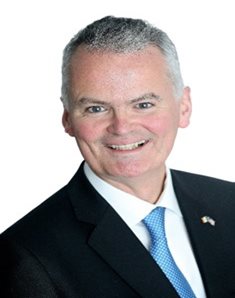
Mark Redmond, Chief Executive, AmCham, said: “The U.S.-Ireland business relationship brings value to the Irish exchequer. For the most recent year that data is available (2018) the Irish operations of U.S. companies spent almost €10bn on payroll, over €6.3bn on goods and services here and over €5.3bn on capital expenditure. The impact of the pandemic on the Irish economy will reveal itself over the near term. It is vitally important that we intensify actions that will help to shorten the downturn, and even more important that we send a message to our important trading partners that we have a clear and urgent roadmap for the re-opening of our country and the recovery of our economy. If we are to protect Ireland’s hard-won reputation for FDI (foreign direct investment) into the future, we must act now.”
However, even as the new program for government is hailed as a green deal for Ireland, with the Green Party’s demands on climate action including a 7 percent reduction in carbon emissions annually, the public does not necessarily support the focus on the environment, while AmCham is proposing to work towards a carbon neutral economy by 2050.
An Irish Times/Ipsos MRBI poll suggest that the public wants the new government to focus on rebuilding the economy (36%); protecting Ireland from COVID-19 (20%); housing and health (17% respectively) and tackling climate change (8%).
The new Taoiseach, if a deal is reached in the coming days, will be Micheál Martin, a 59-year-old former teacher from Turner’s Cross in Cork who has lead Fianna Fáil since 2011 and been a TD for Cork South-Central (member of parliament) for 30 years.
Martin has held a number of ministerial portfolios since he was first elected – foreign affairs, enterprise, trade and employment, health and children, and education and science.
Viewed as socially conservative, Martin made history by banning smoking in Irish pubs, restaurants and other workplaces on March 29 2004. Publicans in Cork called him a ‘zealot,’ according to media reports.
The Irish Examiner newspaper described Martin as a health-conscious sports fan, who has a vegetable stir-fry named after him in the Dáil (parliament) canteen, but lets very few people into his inner circle.
The Irish Independent reported that, although he enjoys the occasional pint in his local Orchard Bar, Martin has long been renowned for his clean-living ways. “His enthusiasm for a nutritious dietary regime has been said to border on the obsessive, and he has been known to berate political acquaintances about what they are eating. Much to the chagrin of his cookie-loving colleagues, the salad and green tea enthusiast banned biscuits from cabinet meetings when he was Health minister, insisting that only fresh fruit be served. He is also said to abhor fried breakfasts.”
Martin and his wife, Mary O’Shea, suffered personal tragedy when their seven-year-old daughter, Leana, died of a cardiac complaint. The couple have three adult children, Micheál Aodh, Aoibhe and Cillian.
When he assumed leadership of the party in 2011, Fianna Fáil had its worst ever election result due in large part to the party’s involvement in the economic crash of 2008-2010 which saw Ireland rely on the World Bank, the International Monetary Fund and the European Union for a bailout. Martin was a member of the Cabinet when that occurred.
He subsequently had the dubious distinction of facing the prospect of being the first Fianna Fáil leader to never become Taoiseach, reportedly an ambition of his for years.
The Irish Independent quoted Martin saying: “I didn’t go into politics to be a backbencher for life and in that respect, I intend going as far as I possibly can in politics.”
In 2016 he agreed to a confidence and supply agreement that enabled Fine Gael’s minority government remain in place to negotiate a Brexit deal for Ireland, citing the national interest. During Ireland’s referendum on abortion, Martin voted to allow it despite major backlash within his party and from some Fianna Fáil voters.
Now he is closer than he has ever been to the top political job in the country, and could become Taoiseach as early as the end of June.
Under the current plan Micheál Martin will serve as Taoiseach until December 2022 and the role will then rotate to Leo Varadkar who will become Tánaiste (Deputy Prime Minister) and hold a ministerial role too.
Martin will take the role at a hugely challenging time for the country, with Ireland potentially facing a massive deficit of €30bn this year, the program for government says Budget 2021 will include a “roadmap” to reduce the deficit and return to a broadly balanced budget.
The new government also committed to banning the sale of new and the importation of second-hand petrol and diesel cars from 2030, ensuring a sustainable supply of housing and dealing with the health care crisis.
These are not the circumstances anyone would wish for and the spotlight will be on Micheal Martin to see how he deals with the perfect storm in the coming months.
The Global Stage at the U.N.
The new leader will also have a greater role on the global stage as Ireland was this week elected to the United Nations Security Council as a non-permanent member for the next two years.
Ireland campaigned against Norway and Canada to win the seat. Taoiseach Leo Varadkar said the victory “underpins Ireland’s place in the world; as a global island, with a clear and tangible ambition to play a central role in contributing to international peace and security. We look forward to working with our partners in the international community from all around the world to promote our shared values of peace, justice, and human rights.”
Deputy Prime Minister (Tanaiste) and Minister for Foreign Affairs Simon Coveney said the result ” is a clear indication of Ireland’s standing internationally. This comes from almost 65 years of UN membership and a steadfast commitment to building peace and investing in conflict prevention. There has not been a day since 1958 when Irish peacekeepers did not serve under the UN Blue Flag. For this and many other reasons, the members of the UN have honored Ireland by placing their trust in us to take a seat at the Security Council and to do our best to further the objectives of peace, conflict resolution and security for all of citizens of all the UN Member States. We will not betray that trust.”
 Emer Mullins is a public affairs specialist working in the non-profit sector. A former journalist she served as assistant editor at Irish America Magazine, and as a writer for the Irish Voice.
Emer Mullins is a public affairs specialist working in the non-profit sector. A former journalist she served as assistant editor at Irish America Magazine, and as a writer for the Irish Voice.

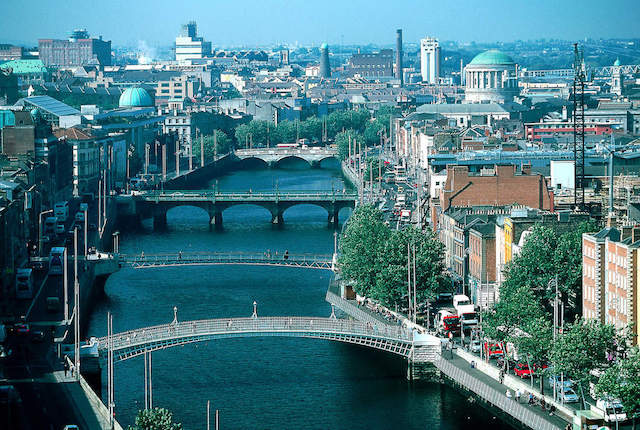
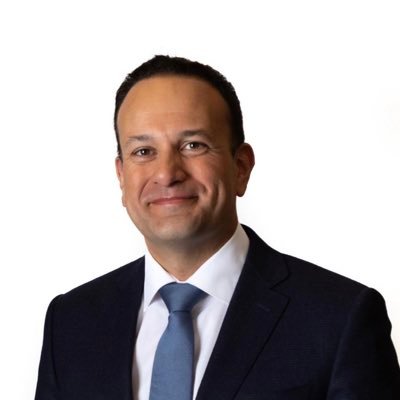
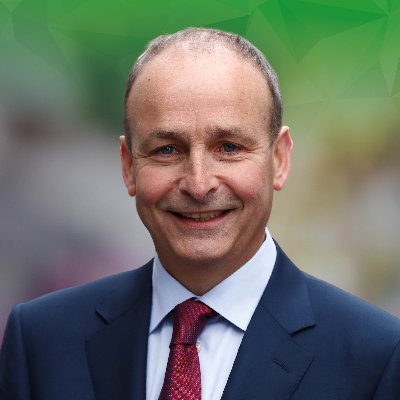
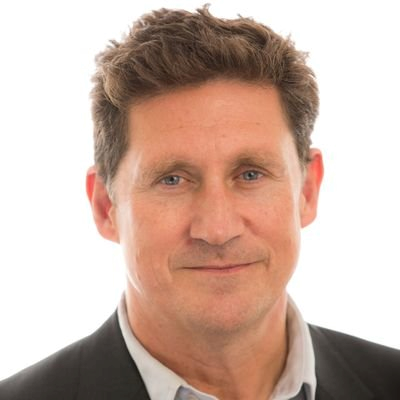
Leave a Reply